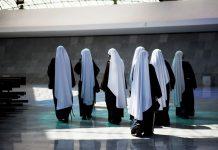According to researchers, the pandemic is offering seminarians the possibility of a deeper relationship, favoring self-knowledge.
Newsdesk (July 20, 2021, 20:00 PM, Gaudium Press) To understand how the pandemic has affected the formation of priests in Brazil, psychologist Luciana Campos and Father Douglas Alves Fontes, rector of St. Joseph’s Seminary of the Archdiocese of Niteroi, decided to conduct a survey with the participation of two thousand seminarians from all over the country.
They published the first report with the results of the survey. In it, the researchers propose to “reflect on the formative mission in times of pandemic.” However, the publication is considered by its authors a synthesis of what they intend to reveal. “Soon, a new article will be published, with a more academic bias. However, we thought it would be good to publish this synthesis anticipating the issues we will discuss and to provide the first results of the research!” says Father Douglas.
Two thousand seminarians answered
The number of responses surprised the researcher. In about two weeks, they had already received feedback from two thousand seminarians from all over Brazil. According to doctor Luciana, the questionnaire “had a very significant percentage of responses. Perhaps it represents close to 50% of the seminarians in Brazil.
“Of those who responded, the majority came from those being formed for the diocesan clergy (92.1%). The seminarians come from the Southeast (38.9%), Northeast (30.2%), South(15.9%), and Midwest (8%) regions of the country. The largest group is part of the discipleship stage (42.8%) followed by the formational stage (34.9%) and then the introductory stage (20%),” explained the psychologist.
Most seminarians returned home during the pandemic
According to the survey, most of the seminarians (62.2%) returned home during the pandemic. Only 25.6% remained in the seminaries. The rest went to parish houses, convents, or alternated between home and seminary. The seminarians who returned to their homes had to deal with family conflicts, which 42.6% of them had to go through.
Spiritual Accompaniment outside the Seminary
The majority of seminarians (67.2%) admitted to reconsidering their vocation during the pandemic, with only 30.8% of them continuing to rely on online spiritual accompaniment. 69.2% could not count on this possibility, a percentage very close to those who admitted to questioning their vocation. Yet 89% reported that their formators had contacted them.
Major difficulties
Among the principal difficulties presented by the seminarians during this period are:
– maintain a routine of prayers (32.5%)
– the lack of social contact (22.1%)
– remain chaste (11.1%)
– lack of spiritual direction (10.5%)
– attend Mass online (7%).
Conclusion
The researchers conclude by pointing out that the pandemic has invited everyone to see and embrace some insights. The first is an experience of maturity that the pandemic demanded. “A context, such as this, asks for mature presbyters and, consequently, seminarians who strive for a human and also spiritual maturity,” they point out.
Another perspective given by the pandemic, especially to those in formation, is the possibility of a deeper inner-relationship, favoring self-knowledge. The researchers concluded that it allows the seminarian to reach “a satisfactory knowledge of his weaknesses, always present in his personality, due to his capacity for self-determination and responsible living.” (EPC)
Compiled by Ena Alfaro





































